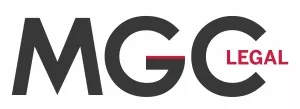- within Insolvency/Bankruptcy/Re-Structuring topic(s)
The concept of 'the work accident' in the 13th article of the Social Insurance and General Health Insurance Law No. 5510 regulated as an extremely comprehensive definition of the occupational accident; it is considered that all incidents that occur in the workplace and damnify are work accidents, whether they are related to the work carried out or not. In addition, by depending on the types of insurance, the accidents which occur outside the workplace although it's related to the work carried out, at times when he/she is not carrying out his/her main work due to the reason that he/she is sent on duty to another place out of the workplace, at times allocated for nursing her child as per labor legislation for a nursing female insurance holder, and during insurance, the holder's going to or coming from the place where the work is carried out are included in the definition of work accidents under certain conditions.
In this context, a work accident is an incident that occurs;
a) when the insurance holder is at the workplace,
b) due to the work carried out by the employer or by the insurance holder if he/she is working on behalf of own name and account,
c) for an insurance holder working under an employer, at times when he/she is not carrying out his/her main work due to the reason that he/she is sent on duty to another place out of the workplace,
d) for a nursing female insurance holder, at times allocated for nursing her child as per labor legislation,
e) during insurance holder's going to or coming from the place, where the work is carried out, on a vehicle provided by the employer,
and which causes, immediate or delayed, physical or mental handicap in the insurance holder.
As it is understood from the provision, every accident that occurs in the workplace is defined as a work accident, but the accidents that occur outside the workplace are considered as work accidents only if they occur due to the execution of the work. Based on this definition, for example, the situations such as that an employee falling while running inside the workplace gets injured, and that an employee arguing with someone in the workplace has a heart attack, and even suicide in the workplace is defined as work accidents.
In accordance with the definition in the law; while investigating whether an accident occurred is a work accident or not, the following four conditions shall be fulfilled at the same time:
a. The person who meets an accident must be insured within the scope of Law No. 5510: Those considered to be insured are indicated in a long list in Article 4 of Law No. 5510. Those who aren't considered to be insured are enacted in Article 6 of the same law.
b. The employee must be suffered a loss: The damage suffered by the employee as a result of the work accident is basically divided into two kinds as tangible damages and intangible damages. Tangible damage occurs in the form of disability (invalidity) or death; the sadness and 'the deficiencies in personality values' that are caused by the tangible damage are called intangible damage as a whole. In claims for compensation arising from work accidents, the general acceptance is that the employee has the right to claim for intangible damage in every case in that the employee suffers tangible damage. This is an important issue in terms of the receivables that the employee may demand.
c. The insurance holder must meet an accident according to one of the matters listed in the above-mentioned article in terms of place and time: According to this, work accident is the incident that occurs; when the insurance holder is at the workplace, at times when he/she is not carrying out his/her main work due to the reason that he/she is sent on duty to another place out of the workplace, at times allocated for nursing her child as per labor legislation for a nursing female insurance holder, and during insurance, the holder's going to or coming from the place, where the work is carried out, on a vehicle provided by the employer.
d. There should be a causal relationship between the accident and the damage which the employee suffered: One of the most important factors in determining whether an event is considered as a work accident and person to be held responsible for the damage is that there should be a causal relation (i) between the work executing by the insurance holder and the accident that occurred, and (ii) between the accident and the damage. In the most general sense, the causal relation means "cause-effect relationship". In other words, in order for the accident that occurred to be considered as a work accident, the accident should be related to the work and the damage in question should occur as a result of this work accident.
THE WORK ACCIDENTS ON SECTORAL BASIS1
In terms of the raw material inputs to the national industry of Turkey as a developing country, the mining sector is at an important point. In this respect, mining makes a great contribution to the economy and manufacturing sector of our country. However, the mining sector is one of the areas where work accidents frequently occur due to its dangerous working conditions; and as a result of the risky working conditions, it is also one of the sectors where injuries, deaths, and financial losses frequently occur. In particular, coal mining is one of the areas where the rate of the occurrence of a work accident is increasing.
The metal industry is also widely worked and is an area that includes competition. This sector is one of the most dangerous working areas due to its risks. It is a sector that poses a danger to human life due to the mechanization and the misuse of work tools and materials. The factors such as not taking necessary occupational health and safety measures and unconscious actions of employees increase work accidents.
The construction sector is an important working area due to the density of employment it covers. The construction sector is a sector where the risk of work accidents is high and especially the number of fatal work accidents is higher in regard to the other fields. Factors such as the majority of unskilled employees in terms of employment, failure to comply with the occupational health and safety rules, and inefficiency of the protective equipment cause work accidents.
THE LIABILITY ARISING FROM WORK ACCIDENTS AND ITS SCOPE
The Civil Liability and Its Scope
The employer is obliged to compensate the bodily harms of the worker due to an occupational accident that occurred and not taking the necessary occupational health and safety measures against the employer's obligation to protect employees. This is generally called tangible compensation.
While determining the amount of this compensation, the criteria such as the income of the employee, the rate of invalidity determined according to the provisions of the social insurance legislation, the fault of the employer, the fault of the employee, the remaining lifetime, and the income provided by the Social Insurance are taken into account; and the material damages on assets are compensated by provided to regard the boundaries of the causal relationship due to work accident or occupational disease of the employee.
In the event of the death of an employee in the work, an accident occurred due to the failure to take the necessary occupational health and safety measures, those whose livelihoods are covered by the insurance holder may claim compensation called "compensation for loss of support". In addition, the employee who suffered bodily harm as a result of a work accident or his relatives in the event of his death may claim compensation for the intangible damage.
The Criminal Liability and Its Scope
The criminal liability arising from work accidents is determined according to the general provisions of the penal law. The main factor causing criminal liability is "fault". The point to be taken as a basis in determining the criminal liability of the employer; is the investigation of whether the employer violated her/his obligations in the employee's actions that caused the accident and the determination of the material element of the crime according to this investigation. As a result of the investigation, if it's determined that the employer didn't fulfill her/his obligations, even if there is damage caused by the act of the employee, the employer is responsible for this damage. A work accident that occurs may be evaluated within the scope of the crimes of "reckless injury" or "reckless killing" regulated in the Turkish Penal Code.
The Administrative Liability and Its Scope
The administrative liability arising from work accidents consists of administrative fines.
Footnote
1 Halil Ibrahim Durdu, "Is kazalarinin ekonomik analizi ve bazi sektörler bazinda degerlendirilmesi"
The content of this article is intended to provide a general guide to the subject matter. Specialist advice should be sought about your specific circumstances.



